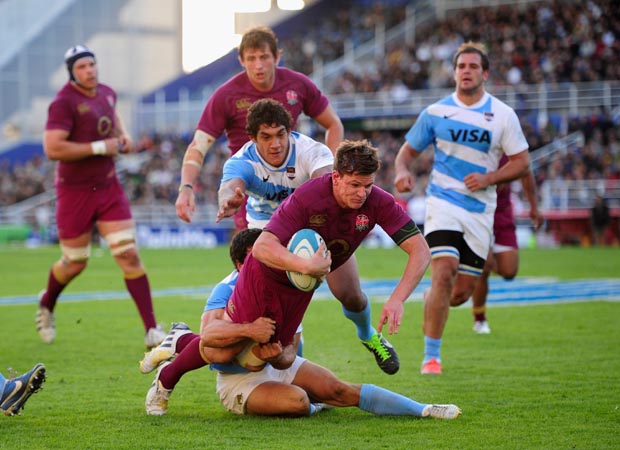 ,Freddie Burns is a big fan of the endurance magician David Blaine. Blaine has found fame and fortune as a modern Harry Houdini, braving ordeals of fire, ice and water in a series of extreme trials over the past 15 years, whereas Burns has just a 15-day window in which to produce enough wizardry against New Zealand to persuade Stuart Lancaster that he could be England’s 2015 World Cup fly-half.
,Freddie Burns is a big fan of the endurance magician David Blaine. Blaine has found fame and fortune as a modern Harry Houdini, braving ordeals of fire, ice and water in a series of extreme trials over the past 15 years, whereas Burns has just a 15-day window in which to produce enough wizardry against New Zealand to persuade Stuart Lancaster that he could be England’s 2015 World Cup fly-half.
The Leicester-bound former Gloucester No.10 is expected to be picked in the Red Rose starting line-up against the All Blacks for the first game of the three-Test series in Auckland on Saturday, with the England head coach unable to select either the cup-tied Owen Farrell, Stephen Myler and Alex Goode, or the injured George Ford.
That puts Burns, 24, higher in the pecking order than Danny Cipriani, who is the only other fly-half in the first tranche of the England tour party which arrived in New Zealand on Thursday.
However, given the stinker of a season that Burns has had, there are bound to be grave reservations about his capacity to avoid the deep hole into which the All Blacks hope he stumbles so they can bury him. The reality is that barring the unavailabilities Burns would not have been close to the starting line-up, and might have struggled to make the tour party at all.
There is no disguising that Burns has had a year to forget, or that he played a full part in torpedoing a season which proved to be his last for Gloucester. It is true that there was trouble brewing at Kingsholm from the start of the season due to one of the weakest set piece operations in the Premiership, particularly scrummaging-wise. Nevertheless, the all-for-one, one-for-all ethos went west when it emerged just before Christmas that Burns was in talks with Leicester.
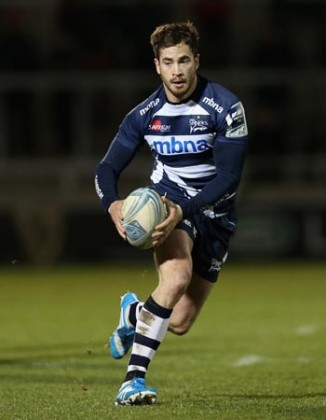
Yet, even allowing for Burns being egged-on by an agent who should have known better than to conduct negotiations with five months of the season remaining, the player should have had the judgement to see that timing and discretion were everything because of the potential disruption to Gloucester. That disruption was almost instantaneous with Burns and the club both suffering a serious dip in confidence and form, to the extent that thereafter he was frequently on the bench with Billy Twelvetrees drafted in at No.10.
Since it emerged that Burns is in pole position to win his fourth cap at fly-half in the Auckland opener, Lancaster has understandably been trying to boost his dented confidence with honeyed words which, frankly, do not stand scrutiny.
The England coach said: “I think Freddie found some form towards the end of the season. Equally, there were one or two other players who hadn’t played well for their clubs coming into the England side for the Six Nations, who managed to deliver great performances. Ben Morgan is a good example, and Billy Twelvetrees, both playing for the same club (Gloucester). You back your coaches you back your system, and your ability to get the best out of people.”
He added, “Form is temporary. You can regenerate form and belief in a player if you put them in the right environment. Once Freddie became aware of the opportunity in front of him he has stood up – as I expected him to – and led the team.”
Lancaster sets great store by England’s training and culture being able to transform a player, but that premise is about to be subjected to detailed scrutiny by New Zealand – and Steve Hansen is not a coach to overlook the chance of nobbling a barely broken-in fly-half.
Form may be temporary, but it is also the best yardstick that Lancaster has of the three-cap Burns’ readiness to take on the world champions. What we do know is that his form did not improve radically at the end of the season. Whether it was Gloucester edging out London Irish at Kingsholm, or losing to Worcester to give the relegated side their first home win of the season, there was nothing in Burns’ game to shout about.
It was especially the case in the goal-kicking department. Burns missed a late penalty attempt to win the Worcester game, and against London Irish he kicked the tee in frustration after missing his first three attempts. The pressure will be ten times greater in front of 50,000 hostile Kiwis at Eden Park than it was when he came on to win his first cap as a replacement in England’s 38-21 victory over the All Blacks at Twickenham in 2012, kicking two late penalties when the game was all but won.
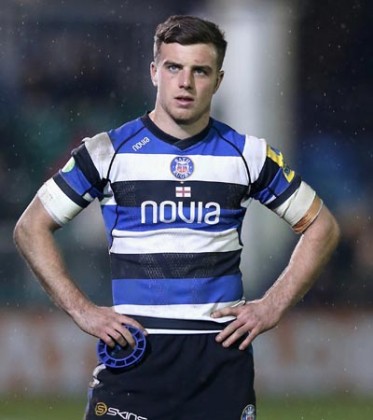
That pressure will mount should Twelvetrees not have recovered sufficiently from an ankle injury to play in the first Test, because Lancaster will be flirting with danger going into a Test against the All Blacks with a streak kicker like Burns, who barely made the Premiership’s top ten marksmen this season.
The counterpoint is that while relying on Burns to deliver this season has been like waiting for a late-night bus to turn up, he is no quitter. Despite making one wrong turn after another for the England Saxons in their defeat by Ireland A early in the new year at Kingsholm – a game in which he was guilty of overplaying his hand – he kept plugging away. He was similarly determined and committed when he tackled his heart out during Gloucester’s narrow defeat by Bath at The Rec in the autumn, before the news of his move to Leicester leaked out.
However, while there are no question-marks over Burns when it comes to ticker, or in terms of having the footwork and pace to threaten any defence, his ability to run a game at Test level against top opposition for the full 80 minutes is unproven.
The pressure New Zealand put on England will be light years away from what Burns experienced on last summer’s tour to Argentina, where he started in both Tests against a Pumas second string outfit that was barely lower end Premiership standard.
Burns will doubtless be aware that any mistakes he makes will be exploited ruthlessly by the All Blacks, especially if he overdoes or over-hits the little chips over the top. Angled grubbers for his team-mates may be less spectacular but they are more difficult to defend. Pin-point accuracy when he kicks out of hand, or passes, is non-negotiable against a lethal counter-attacking side like New Zealand. So is the discipline required to execute England’s exit strategy because the All Blacks are second to none at charging down clearance kicks. His option-taking and judgement will have to be ruled by head more than heart, and his execution, which has too often been hair-trigger, will have to be precision.
On the balance of form this season, and with seven England caps and two seasons of Super 15 experience, Danny Cipriani was unlucky to lose out – although Burns’ greater tenacity in the tackle might explain it. Cipriani was not only the more consistent of the two, but in getting the Sale line into gear he was also slicker and more assured.
Looking at the tour in a broader context, if the grim lessons from the off-field incidents on the 2008 tour and the 2011 World Cup have not persuaded the England players that for a three-week duration their focus should be on beating the All Blacks, not enjoying NZ nightlife, nothing will.
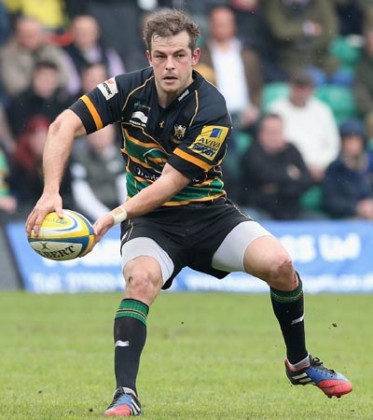
New Zealand are renowned for undermining opponents, both psychologically and physically, by ripping into their points of strength as much as their areas of weakness. Having damaged the All Blacks in their last two games against England, I expect Manu Tuilagi, Mike Brown and Joe Launchbury to be marked out for a hammering by the All Black scalp-hunters.
Lancaster should not hesitate to show his tour party a video nasty of what New Zealand will do to maintain their winning record, especially on home soil, so there is no ambush element and the England players are ready in mind and body to combat the assault. The centre-piece should be the spearing of Brian O’Driscoll (2005 Lions), the sendings off of Simon Shaw (England tour 2004) and Danny Grewcock (England tour 1998) after being goaded into minor retaliation, and the unpunished opening up of Josh Lewsey’s scalp by Ali Williams studs (England tour 2003).
Lancaster also has a star on-the-spot witness in Graham Rowntree. The England forwards coach had to have his skull repaired after Ian Jones had danced on it in Dunedin in 1998 – the All Black perpetrator again getting off scot-free. However, Rowntree had the last laugh when he was one of the 13 ‘White Orcs’, alongside Lewsey, whose epic goal-line stand saw them beat New Zealand in Wellington in 2003.
That match, and the great 1973 victory over the All Blacks in Auckland by John Pullin’s tourists in the amateur era, should also be required viewing. One of the main pillars of both victories was that England outplayed New Zealand in the area of traditional strength where they always expect to dominate – the back-row.
The big question is whether the England back-row in Auckland on Saturday can emulate what John Watkins, Andy Ripley and Tony Neary did in 1973, and Richard Hill, Lawrence Dallaglio and Neil Back did in 2003. From this distance a red rose trio of Tom Johnson (or James Haskell), Ben Morgan and Chris Robshaw will be hard pressed to live with the pace and turn-over expertise of a New Zealand unit of Jerome Kaino, Kieran Read and Richie McCaw, with Liam Messam and Sam Cane a very handy duo to have in reserve.
The fiercest test of England’s endurance, character, skill, and adaptability during Lancaster’s tenure approaches. However, if they are to make history by becoming the first side from Britain and Ireland since the 1971 Lions to win a series in New Zealand, they are also going to have to make some magic.



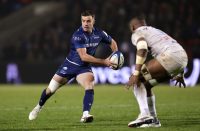
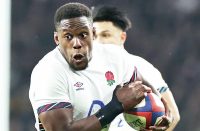



















Pingback: ดูซีรี่ย์